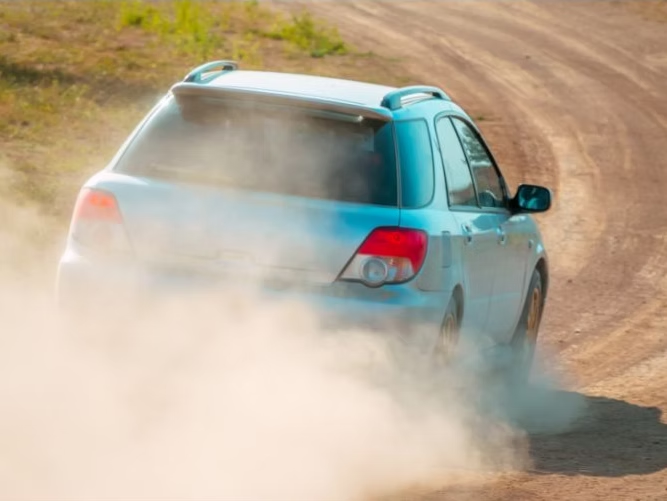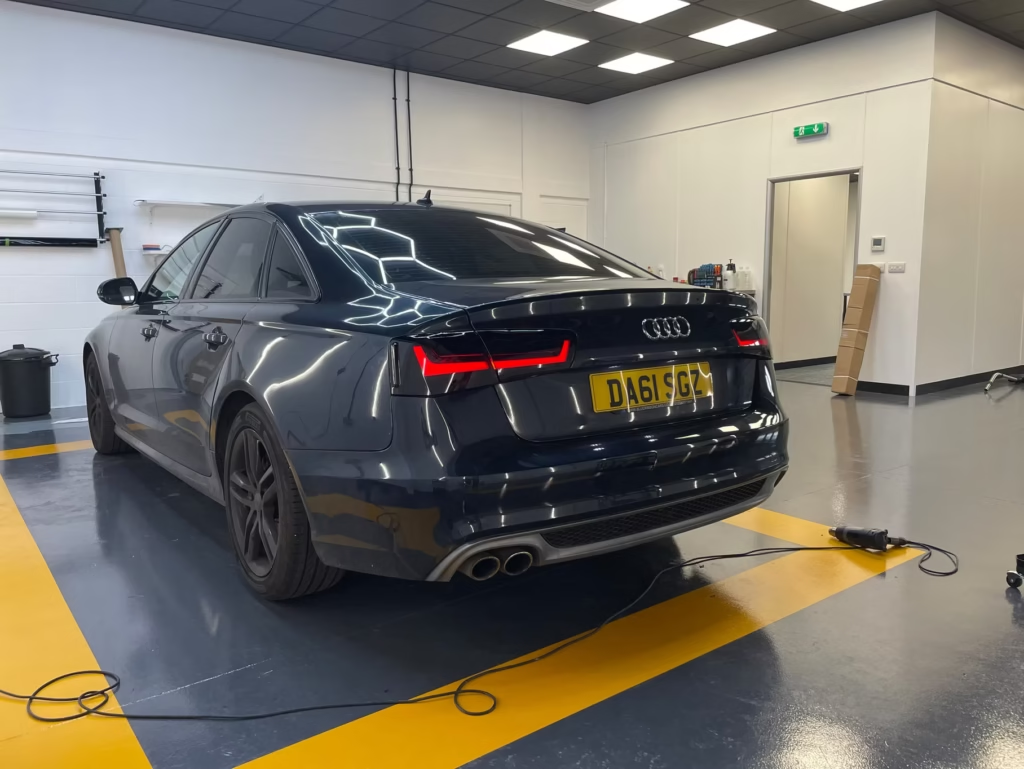// What Causes Cars To Rust?

If you take a lot of pride in your vehicle, rust can be your worst nightmare! Not only does this unsightly brown/orange residue spoil the aesthetic of your car, but it can also cause real damage if not dealt with promptly.
The good news is there are steps you can take and actions you can avoid which will prevent your vehicle from accumulating rust. Here we’ll be going over what they are, ensuring your car stays in pristine condition.
Moisture
Let’s start with the main cause of rust formation on cars: moisture. When water comes into contact with iron, the metal can react with the oxygen in the air through a process you may have heard of – oxidation. So basically, the iron oxide that’s created due to this chemical process is what’s commonly referred to as rust.
Moisture can seep into the tiniest of cracks or crevices in your vehicle, but it can be hard to stop it – especially here in the UK where it seems to rain most days!
Road Salt
While salt effectively melts ice and snow to make the roads much safer during the colder months, it also speeds up the corrosion process on metal surfaces.
That’s because when salt mixes with water on the road, it forms a saline solution that can actually penetrate the protective coatings on a car’s undercarriage and bodywork.
Over time, this causes havoc as it increases the oxidation reaction that leads to rust formation.
If you live in a region where road salt is heavily used or you’re experiencing a particularly cold winter and the local authorities are spreading more than usual, your car will be particularly susceptible to rust damage.
Scratches
Last but by no means least, scratches and chips in your car’s paintwork can also contribute to rust as they compromise its protective barrier against moisture and contaminants such as road salt, dirt and other residue.
When the paint is scratched or chipped, it means the bare metal is exposed, giving water and oxygen the green light to get to work on the rusting process.
Over time, untreated scratches can develop into larger rust spots, compromising the visual appeal and even structural integrity of your vehicle.
How To Prevent Rust
So now we’ve been over the main causes of rust, let’s take a look at how you can prevent it from occurring. Thankfully, avoiding rust is pretty straightforward if you follow the following steps:
Wash Regularly
Regularly washing your car to eliminate accumulated dirt, salt and tar is the first step to keeping rust at bay.
By removing any accumulated debris as soon as possible, this not only maintains the vehicle’s aesthetic appeal but also prevents these elements from corroding the paint or oxidising to create rust.
Wax Protection
Whether you’re washing your car yourself or taking it to a car wash, once it’s had a clean, make sure a high-quality wax or sealant is applied.
This helps to keep your paintwork shielded as it creates a protective barrier against moisture, road salt and other irritants that could cause deterioration in your paintwork.
Paint Protection Film (PPF)
Car paint protection film (PPF), often referred to as paint protection film, is a transparent and durable layer composed of polyurethane or polymer that’s applied to your vehicle’s surface. This film serves as armour, shielding your car’s paint from the wear and tear of everyday life on the road.
When opting for a PPF film, apply it to vulnerable areas like the front bumper, hood or your side mirrors, as well as the metal components you would like to protect from rust.
This transparent layer will act as a shield against debris, scratches and road salt to minimise the risk of your paintwork becoming damaged which, as we’ve learned., can lead to rust.
Regularly Inspect
Regularly inspecting your vehicle and addressing minor scratches or small patches of rust before they get a chance to exacerbate can improve a vehicle’s aesthetic and prolong its paintwork.
Looking for the top Vehicle Wrapping and Modification specialists in Yorkshire?
Get in touch with us today to see how we can help.



